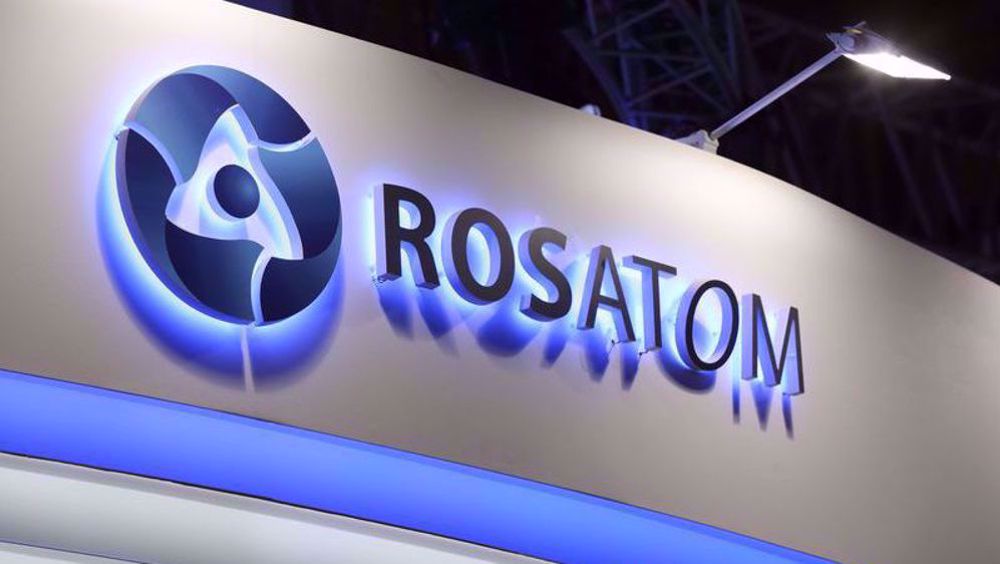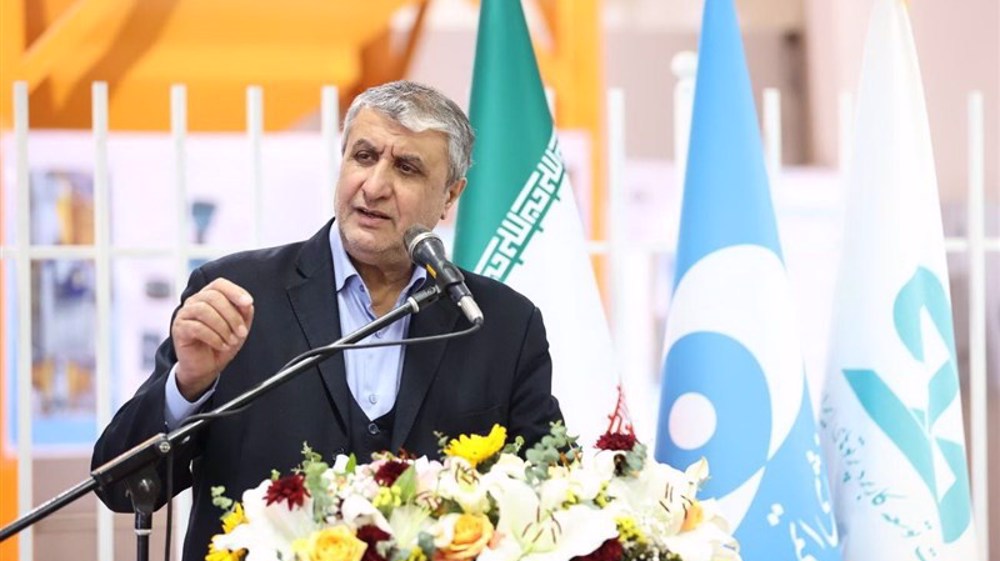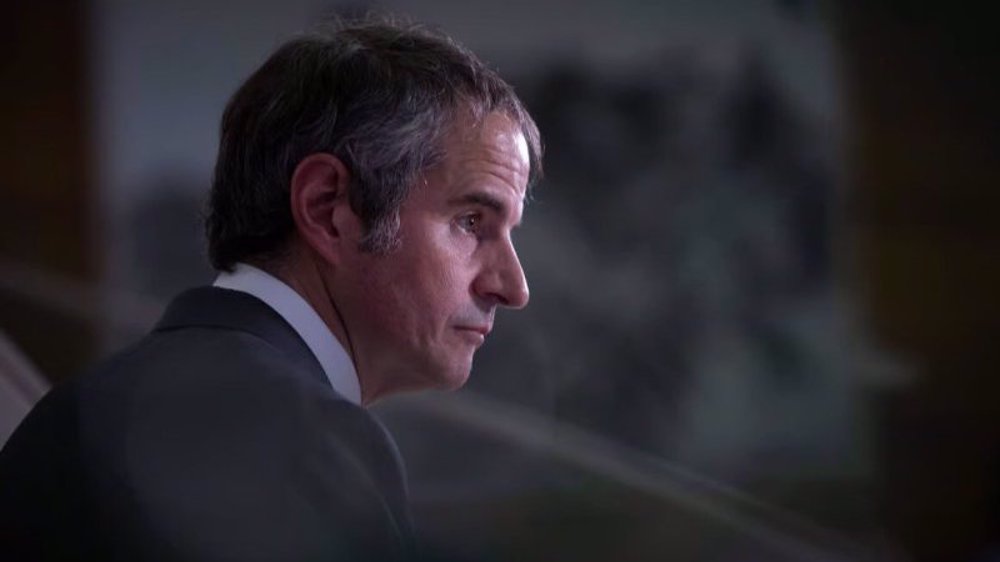Iran to take 5th JCPOA step if Europe fails to fulfill commitments: Shamkhani
A senior Iranian official has warned that the Islamic Republic would take the fifth step of scaling back its commitments under a landmark nuclear deal it clinched with major world powers in 2015 if the European signatories to the accord did not take practical measures to salvage it.
"Tehran has started different steps to reduce its peaceful nuclear commitments in order to maintain and balance its commitments under the JCPOA (the nuclear deal, officially known as the Joint Comprehensive Plan of Action) and if the Europeans fail to fulfill their obligations, we will take the fifth step," Secretary of Iran's Supreme National Security Council Ali Shamkhani said on Sunday.
US President Donald Trump, a stern critic of the historic deal, unilaterally pulled Washington out of the JCPOA in May 2018, and unleashed the “toughest ever” sanctions against the Islamic Republic in defiance of global criticism in an attempt to strangle the Iranian oil trade.
In response to the US unilateral move, Tehran has so far rowed back on its nuclear commitments four times in compliance with Articles 26 and 36 of the JCPOA, but stressed that its retaliatory measures will be reversible as soon as Europe finds practical ways to shield the mutual trade from the US sanctions.
As a first step, Iran increased its enriched uranium stockpile to beyond the 300 kilograms set by the JCPOA.
In the second step, Tehran began enriching uranium to purity rates beyond the JCPOA limit of 3.76 percent.
In the third phase, after the Europeans failed to meet a 60-day deadline to meet Iran’s demands and fulfill their commitments under the deal, Iran started up advanced centrifuges to boost the country's stockpile of enriched uranium and activated 20 IR-4 and 20 IR-6 centrifuges for research and development purposes.
In November, Iran began injecting gas into centrifuges at the Fordow plant as part of its fourth step away from the JCPOA under the supervision of the IAEA.
Read more:
- Iran's daily low-enriched uranium capacity increases to 5.5kg: AEOI chief
- FM Zarif says door still open to talks despite nuclear commitment cuts
- Iran's enrichment capacity reaches 8,660 SWUs: AEOI official
- Iran accumulates slightly more than 130 tonnes of heavy water: IAEA
Elsewhere in his remarks, Shamkhani said after the US pullout, the three European parties to the deal vowed to guarantee Iran's economic interests in accordance with the JCPOA and to keep the deal alive, but they have so far failed to implement practical measures to save the agreement.
"It was the US President Donald Trump who started to reduce the JCPOA commitments by exiting the JCPOA and after that, Europe completed the US measures by ignoring its JCPOA commitments," the top Iranian security official added.
Shamkhani’s remarks came in response to British Foreign Secretary Dominic Raab, who claimed in a tweet on December 17 that the three European parties remain committed to the JCPOA, but Iran's steps will jeopardize its future.
Good to talk to @JY_LeDrian and @HeikoMaas this evening to discuss Iran, Hong Kong and Libya. 🇬🇧🇫🇷🇩🇪remain committed to the nuclear deal, but Iran has taken steps that jeopardise its future. These must be addressed urgently.
— Dominic Raab (@DominicRaab) December 17, 2019
In early November, Iran’s ambassador to the UK described reduction in Iran's commitments under the 2015 nuclear deal as a “wake-up call” for other parties, warning European signatories of a crisis over the collapsing accord.
Hamid Baeidinejad told a group of UK mainstream media representatives on Thursday that Tehran’s move this week to inject gas into centrifuges at its Fordow plant was “adopted as a warning to the other sides and the international community that we are at a crisis.”
In mid-October, Iranian Foreign Minister Mohammad Javad Zarif said the European signatories to the JCPOA have proved incapable of fulfilling their commitments under the agreement.
Addressing the 14th round of Iran-South Africa joint commission meetings in Tehran on October 16, Zarif Iran remained fully compliant with the agreement even one year after the US’ withdrawal from the deal, and gave the Europeans time to implement their obligations to make up for Washington’s pullout.
“Unfortunately, we have not witnessed an efficient measure [on the part of the Europeans], and Europe proved it is not capable of implementing its commitments,” the top Iranian diplomat said, adding that Tehran’s “strategic patience” was exhausted and it scaled back some of its commitments under the JCPOA in line with Articles 26 and 36 of the agreement.
Netanyahu: Israel won't allow Hayat Tahrir al-Sham forces in southern Syria
Hezbollah leaders’ historic funeral showed resistance strength: Islamic Jihad
Iran reports surge in air traffic as Austrian, Lufthansa resume flights
VIDEO | South Africans set to lobby government to isolate Israel
IRGC chief: Nasrallah decisive figure in regional equations with global dimensions
VIDEO | Press TV's News Headlines
Netanyahu's son 'exiled abroad for hitting his father': Knesset member
Iran money supply up 28.4% y/y in late January: CBI












 This makes it easy to access the Press TV website
This makes it easy to access the Press TV website